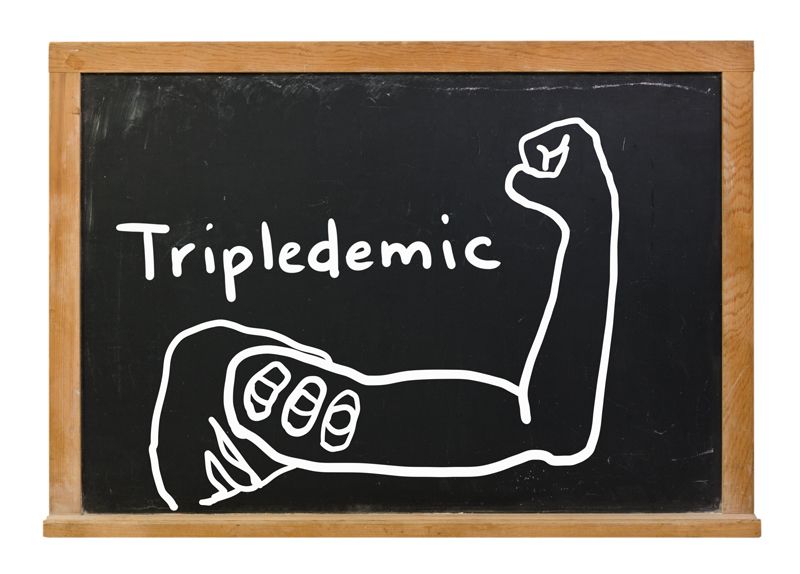A “Tripledemic” – Combined Threat of RSV, COVID, and Flu
A “tripledemic” is what all the experts are calling. A three faced demon that the country is up against this winter composed of the new COVID-19 JN. 1 variant, flu, and RSV.
In a media briefing on January 5th, hosted by Ethnic Media Services, a panel of experts gathered to discuss the simultaneous rise in COVID-19, flu, and respiratory synthetic virus (RSV) cases. The briefing covered the origin, symptoms, prevention, and treatment of these illnesses, as well as the continued importance of vaccines and masks.
Speakers
- Dr. Benjamin Neuman, Chief Virologist of the Global Health Research Complex at Texas A&M University
- Dr. Manisha Newaskar, Pediatric Pulmonologist, Stanford Children’s Health
- Dr. Jose Perez, Chief Medical Officer, South Central Family Health Center
Dr. Benjamin Neuman, the chief virologist of global health research complex at Texas A&M University, kicked off the briefing, discussing the potential long-term respiratory complications of COVID-19. He noted that people who have had COVID-19 can experience difficulty breathing and other respiratory issues, which can lead to death. These complications are currently causing more deaths than COVID-19 itself.
Dr. Neuman also discussed the neurological symptoms associated with COVID-19, such as anxiety and sleeplessness, which are related to the brain. He emphasized the importance of investigating these symptoms and their potential long-term effects.
Dr. Manisha Newaskar, a pediatric pulmonologist at Stanford Children’s Health, discussed the rise in RSV cases and its impact on children. RSV is a respiratory virus that can cause severe illness in infants and young children.
Dr. Newaskar noted that RSV cases typically peak in the winter months, but this year, there has been a significant increase in cases during the summer months. She emphasized the importance of taking precautions to prevent the spread of RSV, such as washing hands frequently and avoiding close contact with sick individuals.
Dr. Jose Perez, the chief medical officer at South Central Family Health Center in LA, provided an overview of all three illnesses and their impact on public health. He noted that the surge of respiratory illnesses threatens to burden an already overstretched healthcare system, particularly for vulnerable communities. Dr. Perez emphasized the importance of vaccines and masks in preventing the spread of these illnesses and protecting vulnerable populations.
The experts also discussed the potential impact of the JN. 1 variant of COVID-19 on the efficacy of existing vaccines. Dr. Neuman noted that the JN. 1 variant is more transmissible than previous variants and may be more resistant to vaccines. However, he emphasized that vaccines are still effective in preventing severe illness and hospitalization, even against the JN. 1 variant.
Dr. Newaskar noted that the JN. 1 variant is also affecting children more than previous variants, highlighting the importance of vaccinating eligible individuals and taking precautions to prevent the spread of the virus.
Another issue addressed was the importance of addressing health disparities and ensuring equitable access to healthcare. Dr. Perez noted that vulnerable communities, such as low-income and minority populations, are disproportionately affected by these illnesses and may face barriers to accessing healthcare. He emphasized the need for targeted outreach and education to ensure that these communities have access to vaccines and other preventative measures.
The briefing covered valuable insights into the simultaneous rise in COVID-19, flu, and RSV cases and their impact on public health. The experts emphasized the importance of vaccines, masks, and preventative measures in preventing the spread of these illnesses and protecting vulnerable populations.
They also highlighted the need for targeted outreach and education to ensure equitable access to healthcare and address health disparities. As the world continues to grapple with the ongoing pandemic, it is crucial to stay informed and take proactive steps to protect ourselves and our communities.


